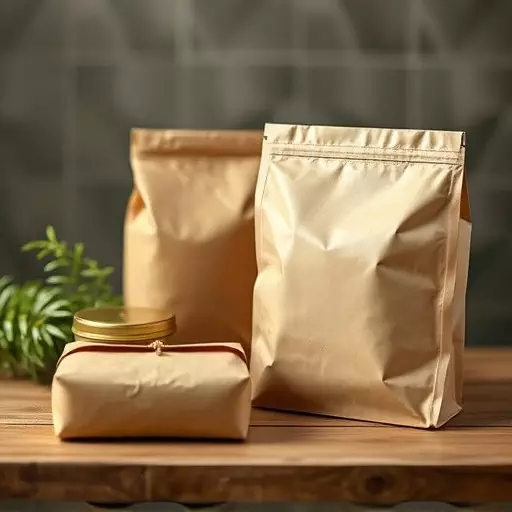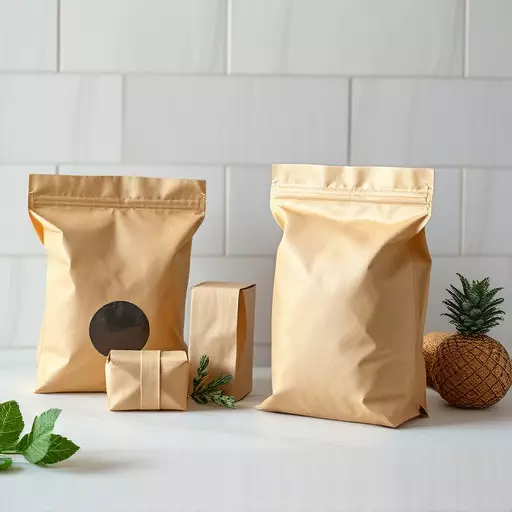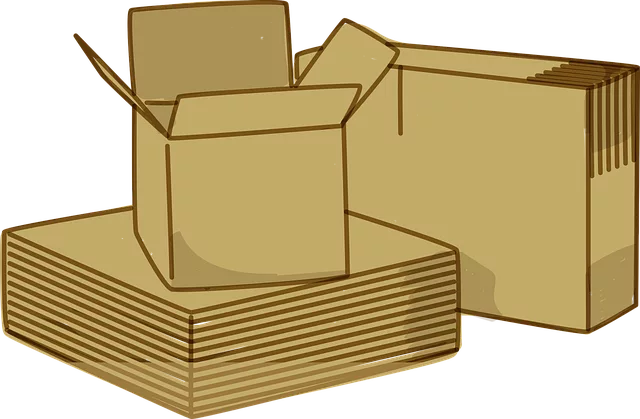Stackable, customizable contract packaging is revolutionizing industry needs by offering tailored, eco-friendly solutions. This approach optimizes space, reduces waste, and protects products during transport, catering to diverse brand requirements while enhancing sustainability. Driven by consumer demand and environmental awareness, the shift towards sustainable contract packaging is significant, with businesses adopting green materials like biodegradable polymers to minimize their ecological footprint. Key benefits include efficient inventory management, reduced shipping costs, and enhanced brand visibility on store shelves. The future of contract packaging is shaped by increasing demand for both sustainable and custom solutions, spurred by advancements in materials science and technological innovations.
Discover the future of efficient and eco-conscious supply chain management with stackable contract packaging. This innovative approach offers a multitude of benefits, from streamlined logistics to reduced environmental impact. In this comprehensive guide, we explore ‘sustainable contract packaging‘ and how it’s revolutionizing brand protection. Learn about customization options, material science advancements, real-world case studies, and future trends shaping the industry. Uncover why ‘custom contract packaging’ is more than just a trend – it’s a necessary step towards greener, more sustainable practices in ‘contract packaging solutions’.
- Understanding Stackable Contract Packaging: A Comprehensive Overview
- The Rise of Sustainable Contract Packaging: An Environmental Perspective
- Customization Options: Tailoring Contract Packaging to Your Brand
- Benefits of Stackable Packaging in Supply Chain Management
- Material Science: Exploring Eco-Friendly Alternatives for Contract Packaging
- Case Studies: Successful Implementations of Stackable Contract Packaging
- Future Trends: Innovation in Contract Packaging Solutions
Understanding Stackable Contract Packaging: A Comprehensive Overview

Stackable contract packaging refers to a innovative approach in the realm of contract packaging, offering tailored solutions that cater to diverse industry needs. It involves designing and producing custom packaging that can be seamlessly stacked, optimized for efficient storage and transportation while ensuring product protection. This method is particularly favored for its sustainability benefits; stackable packages reduce material usage by minimizing voids and maximizing space utilization.
In the competitive market, sustainable contract packaging has become a game-changer. Businesses now demand eco-friendly alternatives without compromising on quality or functionality. Custom contract packaging addresses these concerns by providing unique, brand-specific solutions that enhance product presentation and protect items during transit. This personalized approach not only caters to specific product requirements but also helps businesses stand out in the market while adhering to environmental standards.
The Rise of Sustainable Contract Packaging: An Environmental Perspective

In recent years, there’s been a significant shift in the packaging industry as businesses increasingly seek sustainable contract packaging solutions. This change is driven by growing consumer awareness and regulatory pressures to reduce waste and environmental impact. Traditional contract packaging, often characterized by single-use materials, is giving way to more eco-friendly alternatives. Custom contract packaging, tailored to specific product needs, now incorporates recyclable, biodegradable, or compostable materials, reflecting a commitment to sustainability.
This movement towards sustainable contract packaging isn’t just about meeting environmental standards; it’s also a strategic business decision. By adopting green packaging practices, companies can enhance their brand image, appeal to environmentally conscious consumers, and contribute to a circular economy. This shift promises not only to reduce the carbon footprint of packaged goods but also to create a more resilient and responsible packaging landscape.
Customization Options: Tailoring Contract Packaging to Your Brand

In the realm of contract packaging, one of the key advantages lies in the vast array of customization options available. Custom contract packaging allows businesses to tailor their packaging solutions to perfectly align with their brand identity and unique product requirements. From logo placements and color schemes to specialized shapes and sizes, these flexible solutions offer endless possibilities for self-expression. By choosing sustainable contract packaging materials, companies can further enhance their environmental credentials while still achieving exceptional brand visibility.
Whether you seek innovative designs that set your products apart on store shelves or specialized packaging for niche items, custom contract packaging providers offer a range of services to meet diverse needs. This level of customization ensures that your brand story is effectively communicated, creating a memorable experience for consumers and fostering brand loyalty. With sustainable practices at the forefront, these contract packaging solutions not only benefit businesses but also contribute to a greener future.
Benefits of Stackable Packaging in Supply Chain Management

Stackable packaging offers numerous advantages in supply chain management, especially with the rise of custom contract packaging and a focus on sustainability. One of its key benefits is space optimization during storage and transportation, which is particularly crucial for efficient inventory management and reducing shipping costs. By utilizing stackable designs, manufacturers and logistics providers can maximize the use of available space, ensuring more products are carried per journey or shelf. This is especially valuable for bulky yet lightweight items, where every inch counts.
Furthermore, sustainable contract packaging options that incorporate stackability contribute to a greener supply chain. The ability to stack reduces the need for excessive wrapping and protective materials, lowering the environmental impact associated with packaging waste. This eco-friendly approach not only aligns with sustainability goals but also caters to consumers’ growing demand for environmentally conscious products and packaging solutions.
Material Science: Exploring Eco-Friendly Alternatives for Contract Packaging

In the realm of contract packaging, Material Science plays a pivotal role in driving innovation and sustainability. With growing environmental concerns, there’s a pressing need for eco-friendly alternatives to traditional contract packaging solutions. This shift is not just a response to consumer demands but also a strategic move by manufacturers to reduce their ecological footprint. Researchers and industry experts are exploring innovative materials that can meet the functional requirements of custom contract packaging while minimizing environmental impact.
Biodegradable polymers, plant-based resins, and recycled content are among the sustainable materials being embraced in the development of sustainable contract packaging. These alternatives offer a promising path forward, ensuring that packaging performs effectively while aligning with sustainability goals. The adoption of such materials not only reduces waste but also contributes to circular economy principles by allowing for easier recycling and composting, thus transforming the landscape of contract packaging from a linear process to a more closed-loop system.
Case Studies: Successful Implementations of Stackable Contract Packaging

In the realm of manufacturing and distribution, companies are increasingly adopting stackable contract packaging as a game-changer for their supply chain management. This innovative approach has proven successful in various industries, showcasing its versatility and sustainability benefits. For instance, a leading food processing company implemented custom contract packaging for their dry goods, resulting in reduced waste and improved product protection during transit. By utilizing stackable containers, they optimized storage space, both in transportation vessels and on-site warehouses, leading to significant cost savings.
Another standout case involves a cosmetics brand that shifted towards sustainable contract packaging. They collaborated with a packaging specialist to design eco-friendly, biodegradable boxes for their skincare products. This move not only aligned with the company’s environmental ethos but also enhanced their brand image among eco-conscious consumers. The success of this implementation inspired them to expand their sustainable practices across the entire product range, further solidifying their position as an industry leader in responsible manufacturing.
Future Trends: Innovation in Contract Packaging Solutions

The future of contract packaging is being shaped by a growing demand for innovative, sustainable solutions. As consumers become more conscious of environmental impact, there’s a surge in interest for eco-friendly contract packaging options. This trend is driving development in materials science, with companies exploring bioplastics, recycled content, and compostable materials to reduce their carbon footprint. Customization is another key area of focus; brands are seeking unique, on-brand packaging solutions to stand out in an increasingly crowded marketplace.
Technological advancements are also transforming contract packaging processes. Automation and robotics are streamlining production lines, increasing efficiency and reducing labor costs. Data analytics plays a crucial role too, enabling manufacturers to optimize packaging designs, reduce waste, and improve overall supply chain management. This convergence of sustainability and customization, coupled with technological innovation, promises exciting prospects for the future of contract packaging solutions.


